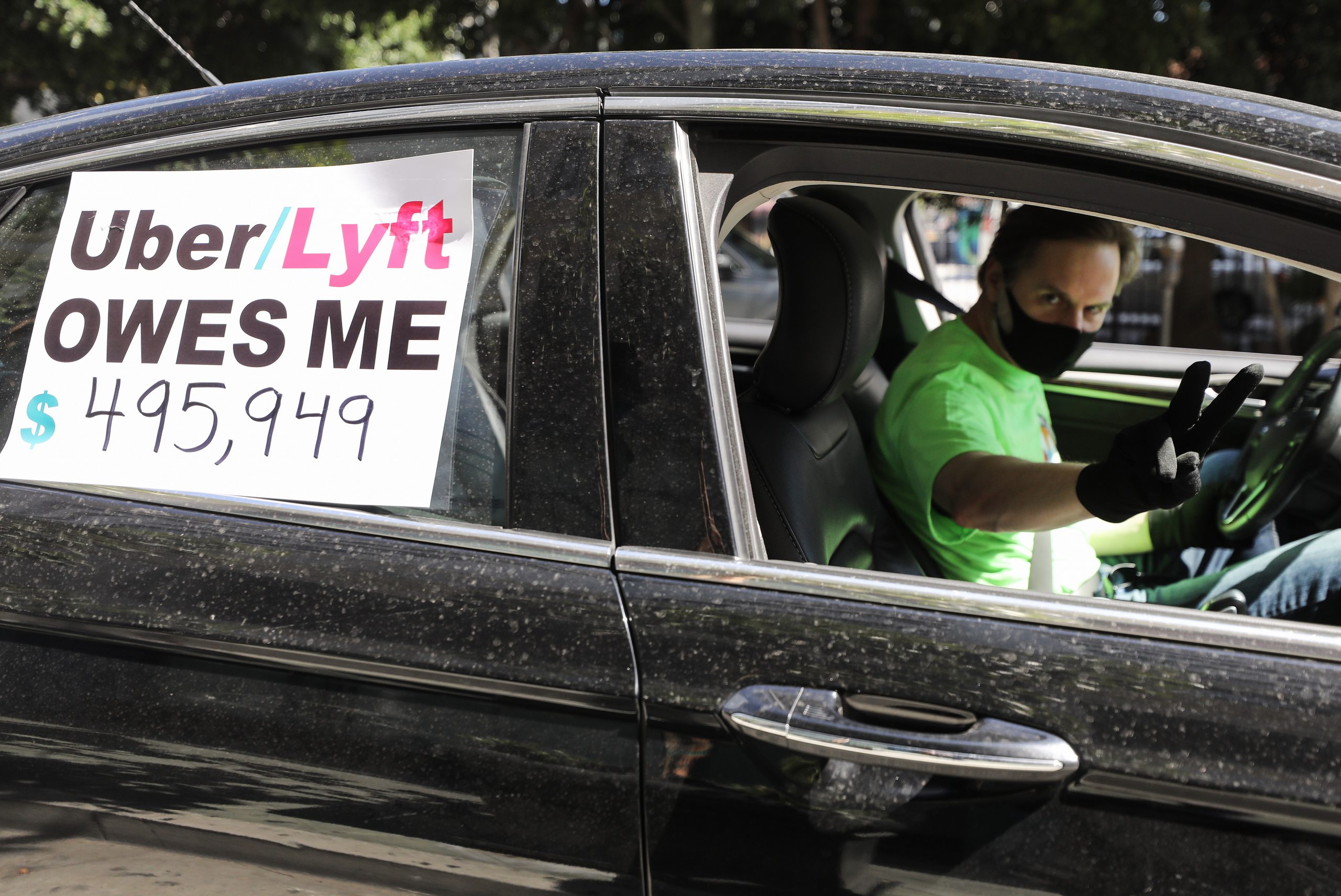
Oh, Uber. On Wednesday (17 March), everyone’s favourite street-clogging ride-hailing company announced that, henceforth, its 70,000 drivers would be guaranteed the minimum wage, holiday pay and pensions. In the Evening Standard, Dara Khosrowshahi, the chief executive of the company (which is definitely a disruptive tech giant and NOT just a taxi firm with an app) described it as a “significant improvement” in the conditions for drivers, adding: “I hope the path that we chose shows our willingness to change”. Awww. Isn’t Uber lovely?
Well, no: Uber is not, and if the sight of a man using a newspaper to promise he can change strikes you as just a little creepy, then there’s a reason. For one thing, drivers will still only be deemed to be working, and compensated accordingly, for the time after they’ve accepted a booking. That means that it’s theoretically possible, however unlikely, for a driver to be online and available for bookings yet still ultimately not receive a penny.
This may be difficult to fix – drivers can now be logged into more than one app at the same time, and it’s probably not realistic to expect each of those apps to provide them with a minimum wage simultaneously – but nonetheless, the status quo still looks a lot like Uber trying to wriggle out of its responsibilities towards the people without whom it wouldn’t have a business. Frances O’Grady, the general secretary of the Trades Union Congress, has called it “the 21st-century equivalent of workers being held at the factory gate, bidding for work”.
[See also: What do Uber drivers’ new rights mean for the gig economy?]
And there’s little reason to give the company the benefit of the doubt because, despite what Khosrowshahi says, Uber has not demonstrated its “willingness to change” at all: it’s been forced into it by defeat in the courts, where it spent five years fighting to prove that its drivers weren’t workers but self-employed. It changed course at the last possible moment, once it had been left with no other option.
This is part of a pattern of behaviour on Uber’s part. It repeatedly fights regulatory rulings in the courts, and only improves when it has little other choice. Since 2017, its licence to operate in London has more than once been threatened by Transport for London (TfL) over concerns it was doing too little to ensure passenger safety. Uber has acted to fix the problems regulators identified, sure – but only after, in TfL’s words, having used software that could be used to prevent “officials from undertaking regulatory or law enforcement duties”. And even as the firm complied, it embarked on a PR war intended to suggest that the problem was TfL’s backwards, anti-innovation attitudes and not, say, its own corporate misbehaviour.
And London is lucky: it’s a profitable enough market that here, at least, Uber has been forced to act. In other territories that have attempted to regulate the firm, such as Barcelona, or Austin, Texas, it has simply pulled out and sent its users a message suggesting that if they want to blame someone, they should speak to their governments.
The thing is, in its reluctance to change unless forced, Uber is not behaving irrationally. Its bosses are legally accountable to its shareholders, who care mainly about profits, and effectively accountable to its customers, who may opt for another app if Uber starts hiking its prices. Indeed, until December, when the company sold its driverless car subsidiary, the company’s openly stated long-term aim was to do away with drivers altogether. Beyond self-congratulatory press releases and recruitment ads about the benefits of being an Uber driver, it has never disguised where drivers featured on its list of priorities.
Those drivers are still, nonetheless, human beings, who need to make rent and feed their families and deserve to live a decent life. A capitalism built on shareholder value is never going to guarantee the rights and benefits of workers. But if companies won’t, regulators must. Sometimes, red tape is a good thing. For the sake of those stuck in the gig economy, I wish the government would remember that more often.
[See also: The Precariat’s Revolt: How Uber drivers fought back]





